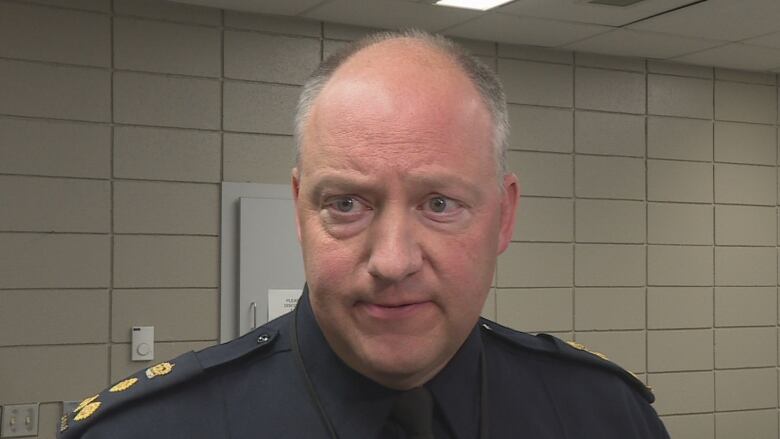Pricey pot could fuel black market trade: Regina police chief
Denver police officer said he can't attribute any increase in domestic violence to marijuana

Regina police Chief Evan Bray is concerned the legalization of marijuana in Canada and its potentially high price could drive the country's black market trade.
Speaking to CBC Saskatchewan's Morning Edition on Wednesday, Bray expanded on comments he made to CBC earlier this week about next year's planned legalization.
One of the unknowns at this point is how much legal pot will cost. Bray says if the price is too high, people will buy the product from illegal dealers.
- Pot possession charges way down in Sask. as it preps for legalization
- Regina's police chief talks 'hidden' costs of marijuana legalization
He also responded to comments made by Denver Police Department Commander James Henning, who said he could not attribute any increase in domestic violence to the legalization of pot, largely due to the lack of data available on the subject.
"I hope that's the case in Regina," Bray said.
"We know that that underground [marijuana] market is very volatile, comes with firearms," he added.
Henning said the Denver police are more likely to make busts involving illegal marijuana and guns than cocaine or heroin busts.
"It tends to be a fairly violent drug trade, believe it or not," Henning said of the U.S. black market for marijuana.
Bray said there were hidden costs to the drug's legalization, including causing problems in domestic relationships similar to alcohol, and adding extra strain on police and municipal resources.
"Let's just talk about the impaired driving piece — it's expensive, it's tough to train for and so [Denver police] tend to default down there to impaired driving," said Bray.
Henning said more general "impaired driving" charges are often laid rather than charges related to specific substances because there's often more than one substance involved.
Bray agreed, but said that situation is not always the case — that sometimes police find drivers impaired by drugs only, which is more difficult than alcohol to test for.
In the case of Canada, Bray said there would have to be specialized training given to officers and proper technology that could administer drug testing in the field.
With files from CBC Radio's The Morning Edition